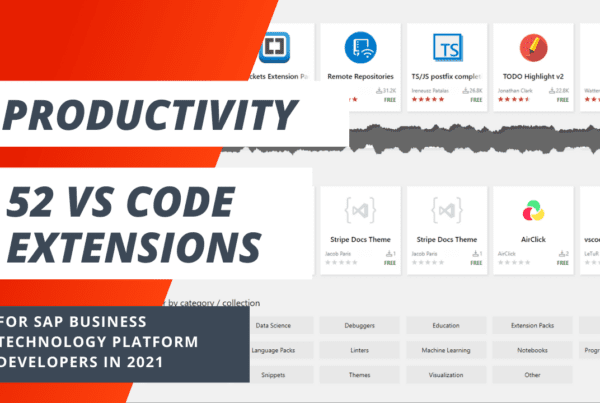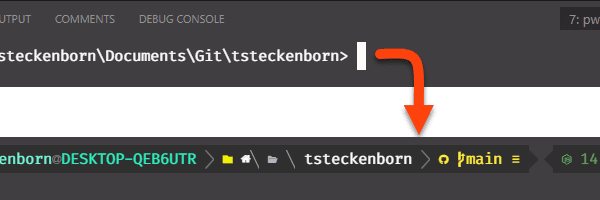Thank you for clicking on that somewhat clickbaity title. It’ll be worth your time.
Reading documentation is usually the fastest way to learn something. But often, documentation is written incomprehensibly. Instructions from experts are easier to consume.
There are plenty of SAP BTP application development sources that are worth following. Sometimes you want to dive deeply into the technical side, while in other moments, you want to know what is new. So here we would like to share with you the sources we follow to keep us up to date with the latest SAP BTP developments. Offered from the SAP BTP Community.

Following content is an excellent way to learn something. The reason we rarely follow more things is that it requires a lot of work. We set up our feed readers to have them all at our fingertips in one place. It even shows us which entries have already been read and which ones we have marked to read later. This means more time for doing exciting work and less time for managing sources.
This blog is not a compilation of mere links to helpful content. We want to help you find your sources and learn from them faster. Today we will look for SAP BTP application development sources to follow and learn from, including my experiences with them.
There are many sources to learn new things about SAP BTP application development. If you know further excellent sources, why not share them in the comments below?
Sources we follow to keep up-to-date with the latest BTP developments
We are always looking for new and interesting sources to keep us up to date with the latest developments at BTP. From “the experts” to other BTP enthusiasts, there’s a lot of good stuff out there about BTP. You could spend your entire life reading blog posts, books, and articles and still not know everything there is to know about it. We have found the resources below to be very useful to us and perhaps you will find them helpful as well.
So here are some of the sources we follow regularly to keep up with the latest BTP developments:
- SAP Community
- Blogs
- YouTube
We will update this post regularly with a list of our favorite sources.
SAP Community
SAP Community is the central hub for all SAP-related content, with a majority of SAPler posting here. In our experience, there is a lot of discussion about various topics such as future developments, best practices and security. Some authors even venture out into niche areas.
It’s hard to overstate how important a central hub for SAP-related content is. We know of no other platform with so much information and contributions on SAP. For authors, it’s convenient as there’s already a large interested audience. But for beginners just starting with SAP, the community can overwhelm and confuse. So let me try to simplify this a bit.
Topic Pages
Topic pages are available to get you started. These provide a curated overview of a topic and link to various other relevant sources, such as the SAP Developer Center and the SAP Help Portal. However, not all topics that might interest you are available. For example, try searching for Cloud Foundry.
To keep up to date, these topic pages are not a primary source for us. Since the topic pages link to blog posts anyway, we prefer to follow them.
Blogs
Next up, you’ve got blogs. These are currently our main source of exciting news and helpful tips. The community shares many stories on how they tackled and solved challenges they encountered. Also, SAPlers communicate the most important announcements here.

Yet, the sheer amount of blog posts can overwhelm you without limiting it down to topics of your interest. So I recommend using tags. Search for relevant tags and only monitor them. For us, these are:
General Application Development
Process Efficiency
User Interfaces
These are my topics of interest so that I can efficiently provide practical solutions. By clicking on a Tag, you can follow it. You can then configure how you want to be notified in your profile, for example, via email.
Being bombarded with emails all day long is not my preferred choice either. Therefore, we use the available RSS feeds. See below in the “Saving time with tools” section for more information about that.

As authors usually tag their posts in multiple areas, you should catch the most relevant content with that. There may be more topics of interest to us, but you can’t keep up with everything and you don’t have to. For example, when we tinker with the CI/CD service, we can always check the relevant posts manually. And you can too. Don’t overwhelm yourself. Otherwise, you won’t read anything anymore.
Questions and Answers
Next, we search the SAP community for questions from community members on these topics. They are available for you to follow using the same tag system Since we only read them when we have a lot of time available, we set up a separate feed.

In my experience, they can be a valuable source of information if you have a problem. But they can also help others if you know the answers.
General Application Development
Process Efficiency
User Interfaces
Be mindful about email notifications here, though. It would be best if you had a sorting/filtering rule implemented in your mail client. Otherwise, the number of emails might get out of hand.
Next, we recommend Twitter. If you’re new to social media, Twitter can be pretty intimidating with the seemingly never-ending stream of information. However, it’s a great place to network and socialize – just don’t expect it to happen overnight.
Twitter is an easy and quick way to connect with other SAP enthusiasts. We find it more efficient than LinkedIn simply because it’s less cluttered. And there are quite a few people to follow there – if you don’t mind the occasional picture from dinner or the train station.

The following list is not just our creation. We asked around in the community who is best to follow. So thanks to Christian Braukmüller, Fabiano Rosa, Wouter Lemaire, Phil Cooley, Iwona Hahn, Volker Buzek, Gregor Wolf, Tim Champagne and many more for their opinions.
This list is not exhaustive and reflects opinions only, although we have tried to tag them according to what has been posted recently. Sorry to categorize you, but it may make it easier for others.
- @dvankempen | Denys van Kempen | Primarily SAP HANA and BTP
- @qmacro | DJ Adams | All around SAP BTP (Workflows Management, Events), CLIs and terminals
- @grahamrobbo | Graham Robinson | General Development
- @wolf_gregor | Gregor Wolf | Primarily SAP Cloud Application Programming Model
- @woodyinflomo | James Wood | UI5 PWA
- @IObert_ | Marius Obert | Primarily UI5 and SAP Business Application Studio
- @RichHeilman | Rich Heilman | Primarily SAP HANA
- @Qualiture | Robin Van Het Hof | Primarily UI5
- @thomas_jung | Thomas Jung | Primarily SAP HANA
- @tchampag | Tim Champagne | UI5 PWA
- @tobiashofmann | Tobias Hofmann | Primarily general SAP BTP
- @vobu | Volker Buzek | Primarily UI5
- @wouter_lemaire | Wouter Lemaire | Primarily UI5
Looking at recent tweets, I see a strong focus on UI5. Where are our backend advocates?
Other blogs and sources
There are other blogs and sites besides the SAP Community, but they are harder to find because of the scattered nature. Also, they often are in the company’s or person’s language, which is beneficial if you speak that language, but otherwise challenging. Due to Google Translator and the likes, you can still benefit from the content.
We follow the following blogs and sites:
English
- Switched On – The Bowdark Blog | They tend to blog about SAPUI5 / Fiori
- AppGyver | Official blog of AppGyver
German
- CloudDNA | Martin Koch and his colleagues are blogging around SAP BTP and UI5
- It’s full of stars! | Tobias Hofmann’s Blog, a mix of English and German posts on different SAP BTP relevant topics
Spanish
- eCastella | Enric Castella Gonzalez blogs about all sort of SAP BTP related topics
- Javi M. Solera | Javi Martinez Solera blogs about all sort of SAP BTP related topics
If you are into Slack I’d also recommend joining the SAP Mentors & Friends channel.
YouTube
While we don’t recommend YouTube as the only source to stay up to date, it can be an entertaining addition. Be careful with the time you will sink here.

With that said, these are the channels I would currently recommend for beginners to get started with SAP BTP application development:
Do you recommend any other active channel on SAP BTP?
Saving time with tools
Now that’s a lot of sources. Monitoring them can be pretty tedious if you try to do it manually. Fortunately, most of the sources cited here offer RSS feeds you can subscribe to.
We use a combination of two solutions – Feedly and Unread. Feedly to subscribe to the sources and Unread to read them on a tablet or phone.
For our type of use, Feedly is free of charge. After creating an account, you can create different feeds and add sources. Since YouTube also offers RSS feeds, you can add any source mentioned here to Feedly. However, there is one limitation: adding Twitter requires a Pro account.

One pleasant thing about Feedly is that you can import and export feeds. So if you also use Feedly, we can share our OPML file with you. You can then import the file and have the same feeds without having to do it manually.
To read our Feedly feeds, we use another app called Unread. It’s an RSS reader available for iPhone and iPad that connects to Feedly. We found it more intuitive and user friendly for our use cases as it has a nice widget and allows us to save or discard items.
Another tool we use to keep up with changelogs that don’t offer RSS feeds are visual change notification addons for Chrome. But that’s a story for another day.
We hope that you were able to gain some benefit from this article. It does not claim to be exhaustive, and we are sure that there are many more people who can help you on your SAP BTP journey. Please share them with us in the comments.
If you’re curious about more content from us, follow us on Twitter, YouTube or another social media platform.
With this in mind, we wish you a successful week and stay curious!
P.s.: If you are still unsure how to prepare for the SAP Business Technology Platform, take a look at this article.



